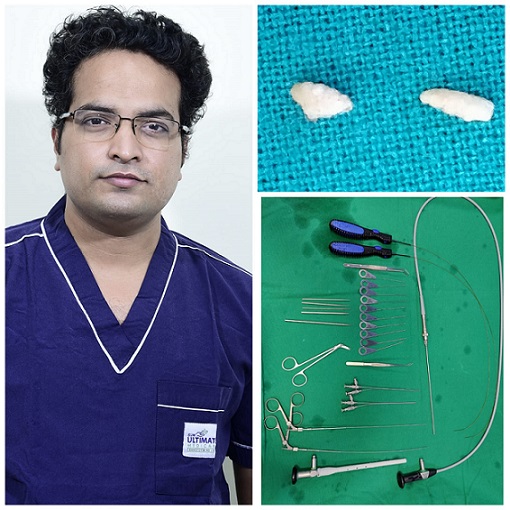By Our Correspondent
BHUBANESWAR: SUM Ultimate Medicare here has become the first hospital in Odisha to introduce Sialoendoscopy, an innovative technique that uses extremely narrow endoscopes for diagnostic and therapeutic purpose of many conditions of salivary gland.
Dr. Radhamadhab Sahu , Head of ENT and Skull Base surgery in the hospital, recently removed stones from the submandibular gland duct using Sialoendoscopy and made the gland functional again in a young adult patient.
“The previous norm was that whenever patients suffered from chronic sialadenitis the entire salivary gland was removed by leaving a visible scar in the neck,” Dr. Sahu said.
Sialoendoscopy is a promising new method for use in the diagnosis, treatment and post operative management of sialadenitis, sialolithiasis and other obstructive salivary gland diseases.
The procedure called sialoendoscopy involves an extremely small endoscope measuring just 1.3 mm which is introduced into the salivary gland duct and the cause of obstruction is directly addressed, he said.
Dehydration and poor eating habits are considered the reasons which can lead to formation of salivary duct stones. Not drinking enough fluids can cause the saliva to concentrate and not eating enough can cause reduction in saliva production forming salivary duct stones, the surgeon said.
The 30-year-old young man from Bhubaneswar approached the hospital with recurrent swelling in upper part of neck on the left side. His main complaint was that when ever he sat down for a meal he would feel a painless lump appearing in his neck which would disappear after a few hours. The patient was diagnosed with sub- mandibular duct stones which were removed successfully using a sialoendoscope without leaving any scar. The submandibular gland was preserved as well.
“As we do not remove kidneys for ureteric stones, similarly we should not remove salivary gland for duct stones, which can be easily addressed using Sialaendoscopy.” Dr.Sahu added.



























